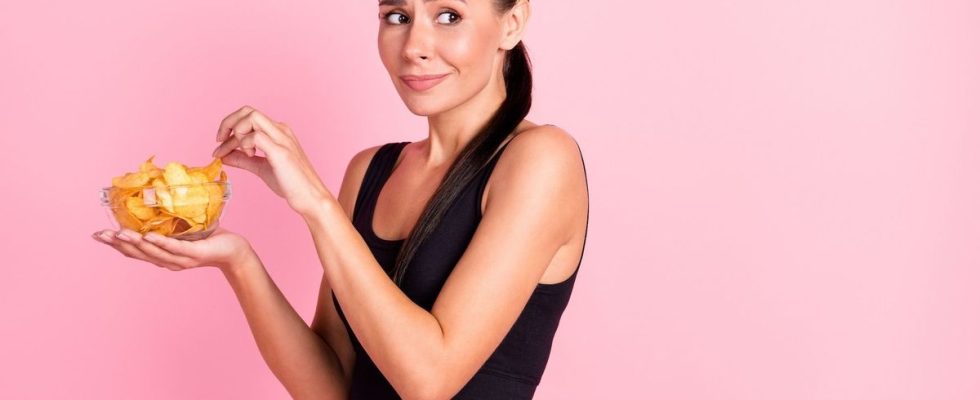Published on
Updated
Reading 2 min.
What is the link between a bag of chips and our bad habits? A priori nothing. Except for the TikTok sphere. According to her, eating chip after chip could explain why we tirelessly repeat unhealthy behaviors in everyday life. TikTok calls this the “Dorito Theory.”
When you open a bag of chips, it’s hard to stop after one or two bites. Usually, you eat several to satisfy your sweet tooth. But in the end, this pleasure is only momentary, and we quickly regret having swallowed the whole package. Which doesn’t stop us from starting again. This ease of repeating our bad habits and falling back into toxic patterns is explained on TikTok under the name “Dorito theory”.
Explanation of the “Dorito theory”
“Eating chips is addictive because the experience is at its peak when you first taste them, not after“, explains this video from @celeste.aria viewed 1.5 million times. “There is nothing that exists once the moment is over. The experience itself is ultimately unsatisfying“.”The things that aren’t truly satisfying are the most addictive and that’s why I want them“, she analyzes.
This theory would be valid for other addictive and unhealthy behaviors that we adopt in our daily lives, from food to social media to our romantic relationships. But is this a crazy new theory that TikTok has the secret to or does it actually hold water?
Good in his body, good in his head!
An explanation for our addiction to bad habits
For psychologist Renée Carr, this theory sums up our addiction to bad habits quite well. “Not feeling full during an activity or relationship can cause you to stay in a situation that isn’t truly satisfying, healthy, or happy.“, she explains to USA Today. “Because we experience just-enough satisfaction, we wrongly believe that complete satisfaction is possible, leading us to stay longer or invest more energy unnecessarily.“.
This notion of ‘just enough’ would explain why we minimize the negative aspects and why we agree to stay with a partner who does not suit us or to keep a job in which we no longer flourish, for example. “We may want to go back to the beginning, when these situations were pleasant. Unfortunately, drugs the alcohol and excessive consumption of appetizing but nutritionally empty foods will not solve our problems“.
Dr. Bruce Y. Lee, who wrote an article on this subject for Forbes, agrees with this, while raising the complexity of dependence. He declares : “A number of other factors can contribute to making you addicted to something or maintaining bad habits. But this theory can help bring a new perspective to what you do“. That’s why he advises asking ourselves when we reproduce these toxic habits: “How will I feel after all this? If the answer is ‘not great’, then maybe it’s not your thing“.
